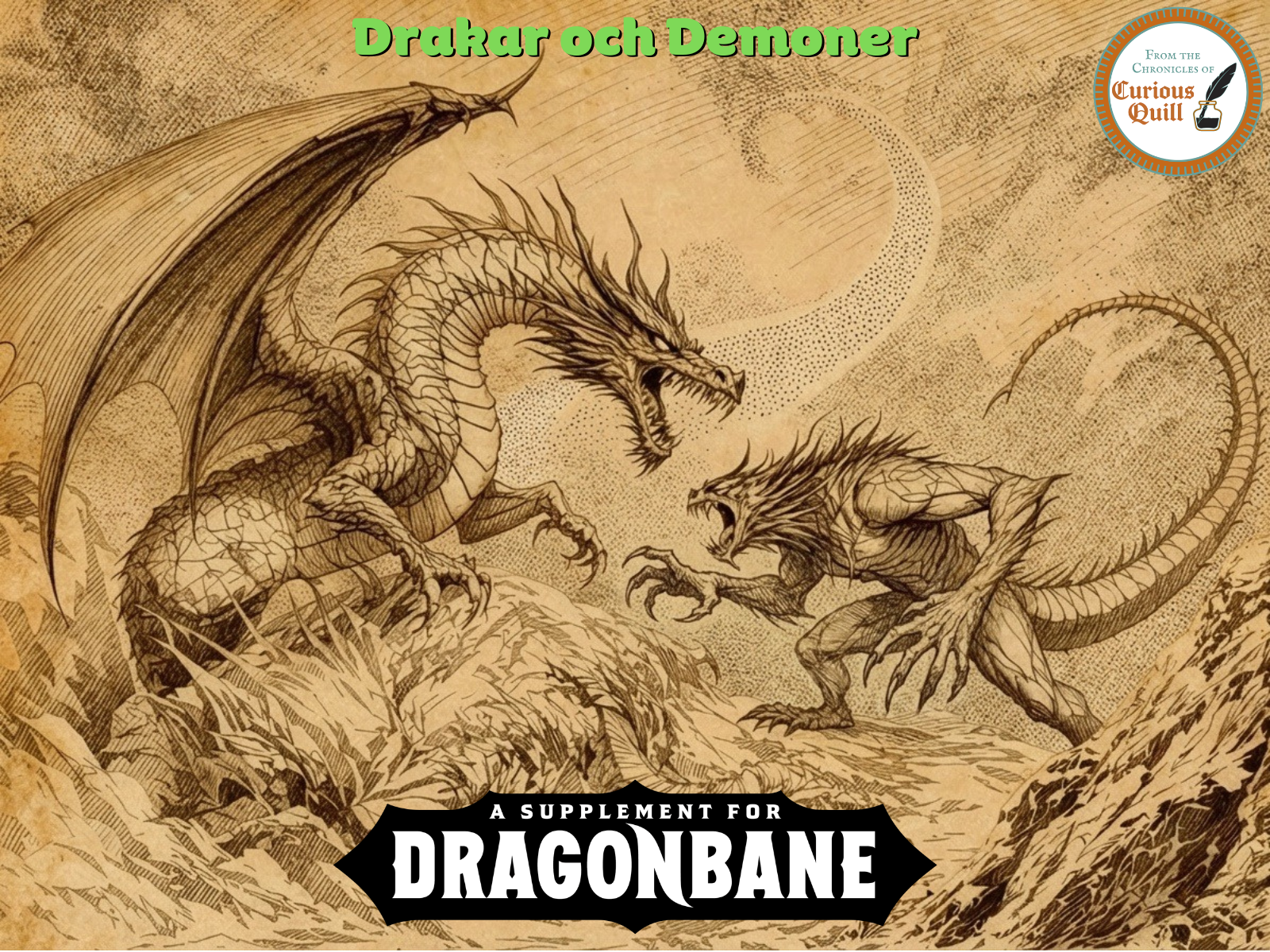Welcome to Curious Quill, an original content resource for fantasy roleplaying.
Announcing a change in direction: supporting Dragonbane. I am Moving On from 5e as my primary focus. Most of what is here is designed to be used in any system, but a lot has focused on 5e. For a time at least, I will be adapting my work to Dragonbane. I hope you join me in my journey, and if you play 5e yourself, remember that there is a plethora of info already here, and new stuff will be easily adaptable. So don’t go anywhere.
Bestiary: Chimaerae
Chimaerae is the classification for the many monstrous beasts that are made up of more than one natural fauna: hybrids such as one of the most well-known, the griffon, which is part lion and part eagle.
Read More about chimaerae.
Bestiary: Dragons
Dragons are the most well known and one of the most feared monsters, but for as well-known as they are across all lands, still much is a mystery including their origins.
Read More about dragons.
Bestiary: Behemoths
Behemoths are gigantic, primordial monsters that have existed since the dawn of the world, and typically are or were considered the alpha predator in their home.
Read More about behemoths.
Gwyven: Mother of Beasts
Gwyven, known as mother of beasts, is a divine being from whom nearly all beasts originate from. Created by the Caelestine, the gods of the four elements, she was given features and qualities from each of them, features that would be the source of the fauna and other beasts.
Read More about Gwyven.
The Baest Notera: A Taluman Bestiary
The Baest Notera is the most well-known and comprehensive bestiary in the land of Taluma. Written hundreds of years ago by the Lokk explorer Nyklandr Sylvfar, with the help of the legendary Curious Quill itself, it still is respected as the foremost authority on beasts. It accomplishes this by presenting age-old folklore and knowledge of many cultures in the classical taxonomy of the Aymirian people.
Read More about the Baest Notera.
New Feat: Predator’s Sense
Orc hunters who follow the path of a Gwyvenclaw develop abilities like a natural predator. Their instinct become honed to strike first when they spot their prey.
Read More about the hunting instincts orc hunters develop.
Background: Orc Gwyvenclaw
Orcs are known as exceptional hunters, but there are some who are renowned for taking this expertise to another level. Some orcs train to be monster hunters. They are known as Gwyvenclaws, after the Taluman divine mother-of-all-beasts Gwyven.
Read More about the Gwyvenclaw Background.
Orcish Monster Rending
After they have hunted and killed a monster, orcs are known to eat the flesh of all manner of creatures. But the other parts of a monster can be as—if not more—valuable than the meat. The process of breaking down a monster is called rending among the orcs, similar to dressing among other people. .
Read More about orc monster rending.
Orc Tattoos
Many cultures are known to use tattoos, including tattoos. While they are often found among subcultures or specific groups in other cultures, among the orcs it is more of a rule.
Read More about how important tattoos are to orcs.










